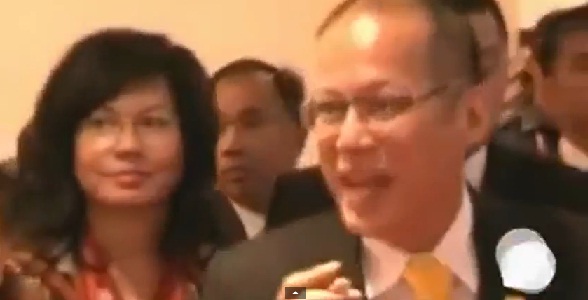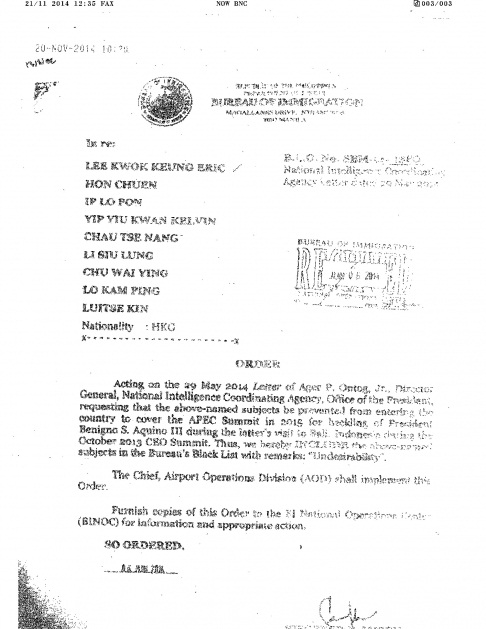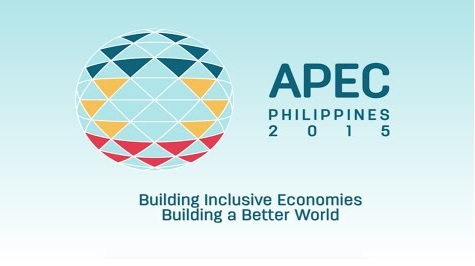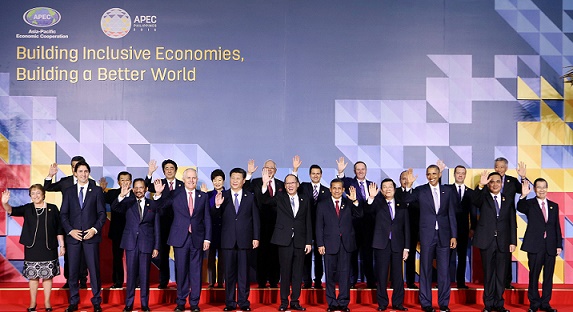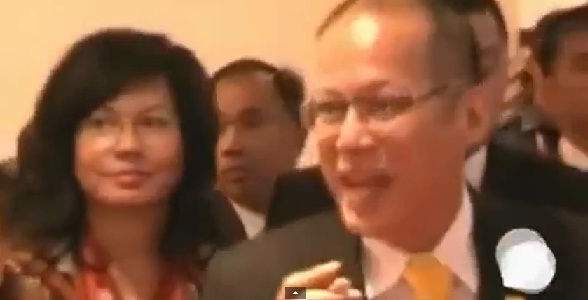
BY ELLEN T. TORDESILLAS
AGER Ontog, director-general of the National Intelligence Coordinating Agency (NICA), who showed his lack of intelligence when he ordered the ban of Hongkong journalists who asked questions that displeased President Aquino during the 2013 summit of Asia Pacific Economic Conference in Bali, Indonesia, said he did not regret his order that Malacañang cancelled after it was exposed in media last week.
There are military officers who are enlightened about the role of media in a democracy but it seems that Ontog is not one of them. Which is not really surprising because even President Aquino, whose parents played a big part in Filipino people struggle to regain their freedom, including press freedom, thinks it’s media’s obligation to make him look good in public.
Servants take their cue from the master.
Ontog requested the Bureau of Immigration to ban the nine to cover the 2015 APEC summit to be held in Manila. BI’s Elaine Tan went one step further and classified the nine as “undesirable.”
Banned from entering the Philippines were Hongkong journalists Lee Kwok Keung Eric, Hon Chuen, IP Lo Pon, Yip Yiu Kwan KPLVIN, Chan Tse Nang, Li Siu Lung, Chu Wai Ying, Lo Kam Ping, Luitse Kin.
Tan said the nine journalists committed “acts against the President during the summit in Bali, Indonesia.”
What were “those acts against the President” that merited an assault on the universal human right of freedom of the press?
The Hongkong journalists asked Aquino about the August 2010 Rizal Park hostage taking where eight Hongkong tourists were killed.
The Hong kong journalists asked whether Aquino was meeting with Hong Kong leader Leung Chun-Ying and if he was going to apologize to the families of the victims.
In the video, Aquino looked nervous. His answer was inaudible. The HK journalists then asked, “So you’re ignoring the Hong Kong people, right?”
He didn’t answer.
(Last April, Secretary to the Cabinet Rene Almendras conveyed to Hongkong the government’s “sorrowful regret and profound sympathies” while Manila City Mayor Joseph apologized putting closure to the issue.)
Tan said a foreigner maybe disallowed entry if he shows disrespect or makes utterances to “symbols” of authority, which the President is.
“The rationale is that the subject is a threat to public safety and blacklisting minimizes that risk,” she said.
Tan, Ontog and Malacañang officials should watch videos of White House interviews while the U.S. President walks. Reporters shout their questions.
That is not being disrespectful. During interviews where the reporters could not get near the officials, or where more than one ask questions, one has to shout his question to be heard.
It is understandable that Aquino would be rattled by questions of an incident which he grossly mishandled. That’s his problem.
Reporters ask questions as part of their job of giving accurate information to the public.
Unfriendly questions come with the territory for public officials. That’s a price that those in high office have to put up with.
Even Deputy Presidential Spokesperson Abigail Valte doesn’t seem to understand that.
Before the ban was lifted, she said, “Our position is that the exclusion would be re-assessed given that there was no similar incident during this year’s summit in Beijing.”
Even if there was, banning a reporter just because he asked a question that displeased the President is wrong.
As the Foreign Correspondent Association of the Philippines said in a statement,“ …an intelligence agency’s declaration of a journalist as a public safety threat – based only on his/her conduct of asking questions of the President and without a single complaint from either the foreign affairs department or the press office of the Office of the President, both political offices more adept at dealing with the press – gives a chilling message to journalists worldwide: If the government’s intelligence agency does not the like the way you ask questions, you may be labeled a public safety threat and blacklisted from the Philippines.”
FOCAP is asking the Aquino government particularly BI and NICA “to be clarified as to what manner of questioning the President constitutes a public safety threat.”
We are waiting for that guideline.
